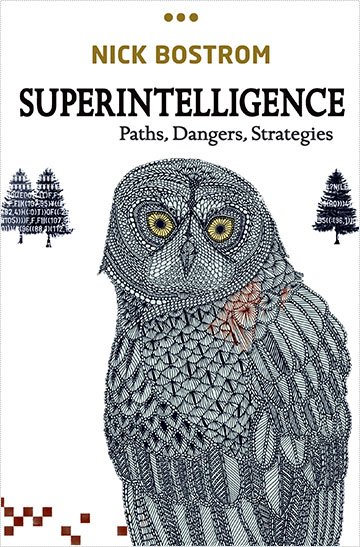I first became interested in AI from the book Homo Deus where Noah Yuval Harari makes the claim that we are in the midst of creating a new species on the planet with Artificial Intelligence. Harari does a good job of laying out the existential risks of our attempts and it sparked my interests enough to look further into the subject. I’m also a big fan of Sam Harris. In his book Making Sense he interviews Nick Bostrom and the discussion of his book Superintelligence was intriguing. In the segment titled “Will we destroy the future” Harris almost demands that his listeners read the book and I took the bait.
From my perspective as an industrial designer, I’m constantly thinking about the future. I’m also concerned about the existential risk of the continual creation of stuff and the consequences of our consumer culture. Recently though, I’ve began to wonder if something else might beat us to the punch. As brick and mortar retail is dwindling and “product design” shifts from the creation of physical goods to digital ones, I see a shift in the wants and needs of people in our modern culture from tangible to intangible things. Along with this shift comes more and more interaction with Artificial Intelligence. As a designer, you are constantly on the lookout for new trends in how people are living. I think it’s important to learn as much as possible about what is on the horizon of creation. AI fits the bill and will no doubt continue to be the driver of the future and therefore Superintelligence found its way into my stack.
Superintelligence is an IN DEPTH overview of current AI trends and how it may become super intelligent in the future. The book goes into extensive details on how humans should react and what we will be up against once, as Harari suggests, we are sharing the planet with this new species. Bostrom lays it all out in the book: How the superintelligence will learn, how it will grow, how it will think, what will motivate an AI, and then once fully realized, how it will globally coagulate into a single unstoppable entity or Singleton. Throughout the book, it is clear Bostrom has put more thought into this topic than most. I was skeptical and found myself trying to disprove his arguments on several points. The idea that an AI could become unstoppable and outside of human control is an example. If you’ve ever spilled a pint of beer on your laptop as I have, you know it doesn’t take much to kill a computer. Although, Bostrom is quick to provide a response to the typical critic. In the case of spilled beer saving the world, the suggestion is made that a superintelligence may become so smart it takes on a “Decisive strategic advantage” above all other intelligent beings giving it the ability to reformulate matter to build its own hardware from beer proof materials. Humans are currently reforming matter into a myriad of things. Just look at anything made of modern plastics or have a glance towards your local neighborhood oil refinery to see our capabilities in action. A super AI would have all the abilities of humans and so much more. One of the challenges of the book to really understand the true capabilities of a untethered AI to extent that Bostrom does. As a human myself, it’s hard to imagine life beyond human existence, although in this book, that scenario is fully flushed out and and carried hundreds of thousands of years into the future where a Super Intelligent AI could flourish moving on from the initial takeover of our little blue dot and then to the entire Universe which surrounds us and beyond.
I will think twice before taking on any more recommendations from Sam Harris’ podcast. This book was a chore and It’s a lot of “what ifs” and I was looking more for a better understanding of where the technology is at currently and particularly how it’s being used within the context of Industrial Design and Product Development today. Jeremy Rifkin does a good job of this in his book “The Third Industrial Revolution” His descriptions of “Smart Technology” in use today are much more my speed. It took me the better part of 6 months to push through this book. Still, there were some interesting ideas to consider and I enjoyed the grandiose nature of the ideas Bostrom presents. Once I was able to shake off the technical aspects of the book and bring it down to the level of a good episode of Ancient Aliens I was able to move though at a better pace. I found myself dreaming of how fun it would be bump into the author at a spiritual retreat or free thinking place like Burning Man, sitting around the campfire, I’d love ask him silly questions like “tell me more about what happens when the whole world turns into paperclips” There’s a lighthearted nature to this apocalyptic book that is hard to find but very much there. If you decide to take it on for size, I truly hope you’re able to find it.
